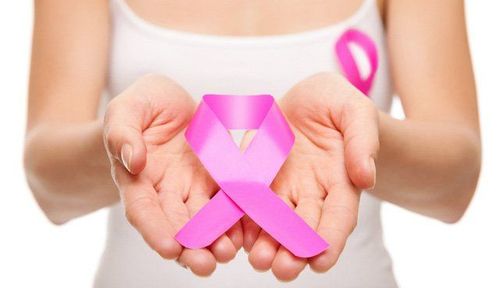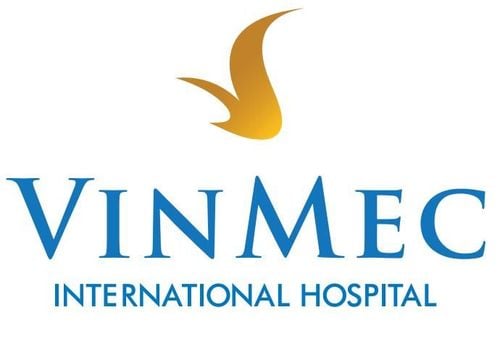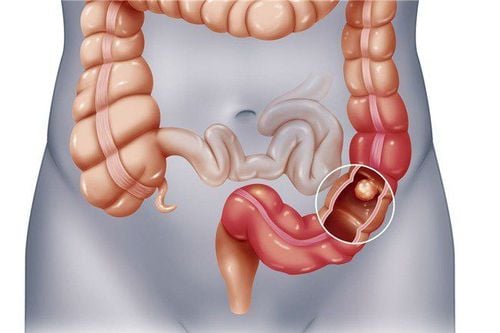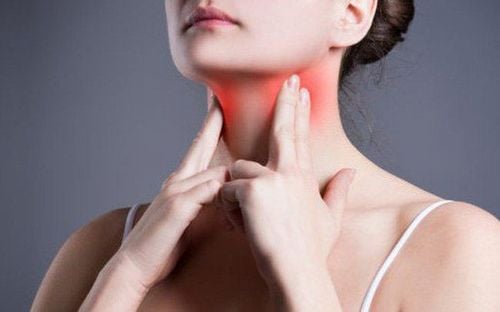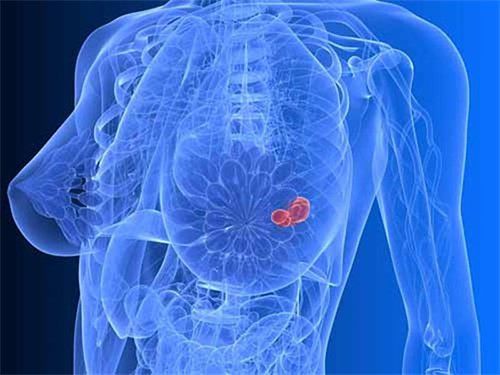This is an automatically translated article.
The article was professionally consulted by Specialist Doctor I Le Thien Quang - Internal Oncologist - Department of Examination & Internal Medicine - Vinmec Danang International Hospital
Breast cancer is the leading cause of death in women, so detecting the symptoms of the disease and treating it promptly is very important. Please fully equip yourself with knowledge about this disease by referring to the article below.
1. What is breast cancer?
Breast cancer is a malignant tumor of the breast. A tumor can be benign (non-cancerous) or malignant (cancerous). Most breast cancers start in the milk ducts, with a small percentage developing in the milk sacs or lobules. If breast cancer is detected and treated late, it may have metastasized to the bones and other organs, and the pain will multiply.
2. Warning signs of breast cancer
2.1. Chest pain The chest area has a dull pain, with no clear pattern. It is more likely that this is a warning signal for early-stage malignant breast cancer. If the chest pain, burning is persistent or is getting worse, you should see a doctor right away.2.2. Skin changes Most people with this disease often change the color and texture of the skin in the chest area. The skin often has many wrinkles or dimples, the surrounding skin often has blisters, itching that does not end.
2.3. Swollen or swollen lymph nodes Swollen lymph nodes are not only a sign of common illnesses such as colds and infections, but also breast cancer. If you have a lump or painful bump under the skin that lasts for several days and you don't know why, this could be a warning sign of breast cancer.
2.4. Back, shoulder or neck pain Some women with this condition, instead of chest pain, often feel back or shoulder pain. The pain often occurs in the upper back or between the shoulder blades, which can be confused with ligament strain or diseases directly related to the spine.
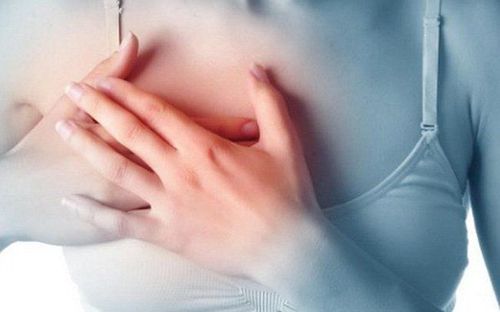
3. Breast Cancer Stages
Unlike other cancers, breast cancer is a completely curable disease if detected early, about 80% of patients are completely cured if detected in the early stages.
3.1. Stage 0 Breast Cancer (Early Stage) In this early stage, breast cancer cells are discovered by a doctor in the milk ducts. We call this non-invasive breast cancer, or otherwise known as carcinoma in situ. The patient will be treated for breast cancer to prevent the spread of the disease. Often patients only need to remove the tumor and use additional radiation therapy.
3.2. Breast cancer stage 1 In stage 1A, the tumor is still small, 2cm in size, and the lymph nodes have not been affected. When the disease has progressed to stage 1B, there will not only be a tumor in the breast but also a tumor in the axillary lymph nodes. These are still 2 early stages of disease detection. Your doctor will use surgery combined with several therapies to treat the disease.
3.3. Stage 2 breast cancer In stage 2, the tumor is 2 to 5cm in size and may not have spread to the lymph nodes or to the armpits. This stage is divided into 2 sub-stages: 2A and 2B.
Stage 2A: No primary tumor and less than 4 lymph nodes. Tumor size less than 2cm and less than 4 lymph nodes. The tumor is 2 to 4 cm and has not spread to the lymph nodes or lymph nodes under the arm. Stage 2B: At stage, the tumor is 2 to 4cm in size and clusters of cancer cells are found in the lymph nodes, 1-3 lymph nodes in the armpit or near the breastbone. Or, the tumor is larger than 5cm and has not invaded the lymph nodes. Patients diagnosed with stage 2 disease should combine surgical treatment, radiation therapy, chemotherapy and hormone therapy.
3.4. Stage 3 breast cancer When you are diagnosed in stage 3, the tumor in the body has spread to 4 to 9 lymph nodes in the armpit or to the lymph nodes inside the breast.
In stage 3, the patient's treatment is the same as in stage 2. If your doctor finds a large primary tumor, you will have chemotherapy to shrink the tumor before proceeding. surgery.
3.5. Breast cancer stage 4 (late stage) This stage is considered the final stage of the cancer. Cancer cells have spread and metastasized to many organs in the patient's body. Breast cancer often metastasizes to the bones, brain, lungs, and liver. At this stage, your doctor will assign you aggressive systemic treatment, which is a common method for patients being treated for late-stage breast cancer.
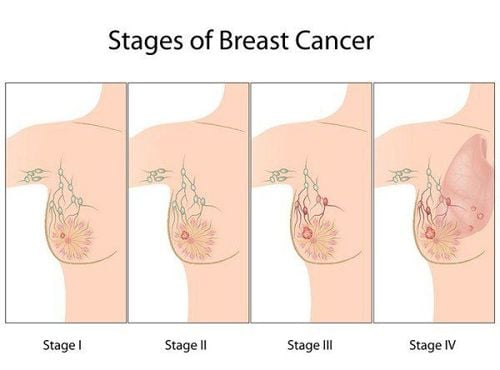
4. Causes of Breast Cancer
Breast cancer is most often acquired in women who have given birth late, are not fertile, or are not breastfeeding. Genetics: If your mother, grandmother, or siblings have this disease, you should also go to the hospital to get tested, because this disease can be passed on in family members. Early menarche or late menopause can also be the cause. People with a history of breast-related diseases such as cystic fibrosis, ... Living in a toxic and polluted environment also creates conditions for breast cancer. Obesity, inactivity, eating foods that are poor in vitamins, smoking, and drinking alcohol are also at risk of breast cancer.5. Subjects at risk of breast cancer
People with a family history of breast cancer. People with fertility problems (infertility, infertility or having their first child when they are over 35 years old). People with a personal history of cysts or fibrocystic breast disease, ovarian cancer, uterine cancer,... People who have to be exposed to a lot of toxic chemicals, radiation.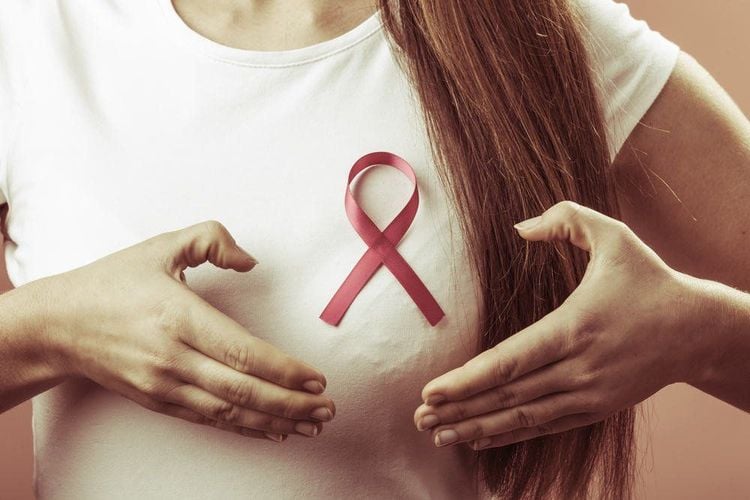
6. Breast cancer treatment
6.1. Breast cancer surgery For small tumours, the doctor will appoint a surgical dissection. If the cancer has spread, the doctor will perform mammography (this is a technique to completely remove the breast including the skin, nipple and milk glands).The surgeons will perform a skin-sparing mastectomy to make the reconstruction of the mammary gland more convenient, and at the same time, it can also remove the biopsy lymph nodes to analyze the cells to detect whether the cancer has spread to the lymph nodes or not yet. In some cases, women with breast cancer may choose to have their normal breast removed (also called "prophylactic mastectomy") if the risk is high, such as a family history of breast cancer. or carry a mutated gene associated with the disease.
6.2.Radiation therapy This method uses high-energy beams such as X-rays and protons to kill cancer cells. After the patient has had a mammogram, these beams will be used for external irradiation to ensure that the cancer cells have been destroyed.
6.3.Chemotherapy Using drugs to kill cancer cells. Target audience is people whose cancer cells have a high risk of recurrence or spread to other parts of the body. Sometimes chemotherapy is also prescribed first to shrink a large tumor to facilitate its removal during surgery. Chemotherapy is often prescribed when cancer cells have spread, the aim is to better control accompanying symptoms.
7. How to prevent breast cancer

Increase understanding of the disease in order to detect early signs related to the disease.
Build yourself a healthy lifestyle:
Eat more green vegetables, increase foods rich in phytoestrogènes. Consider hormone therapy for menopause: Adding the hormone estrogen to the body can increase breast cell division, leading to an increased risk of stimulating the growth of abnormal cells. cause breast cancer. Note that some medications, such as antidepressants and diuretics, increase the risk of breast cancer. Vinmec International General Hospital has been implementing breast cancer screening and early detection packages for female customers who need to be able to screen for breast-gynecological cancers (neck) uterus, uterus, ovaries). Support customers to examine and detect disease early to have timely treatment.
Please dial HOTLINE for more information or register for an appointment HERE. Download MyVinmec app to make appointments faster and to manage your bookings easily.





